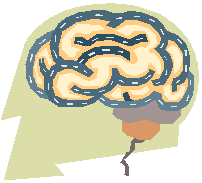 Recently we spoke about performance and productivity. Click Here to Read Part 1
Recently we spoke about performance and productivity. Click Here to Read Part 1
We established the need for increasing productivity due to the constantly ever-increasing demands of modern day, the increase in resource costs and the need for higher output (productivity) per input (effort/resources) just to keep our heads above water let alone getting further ahead.
The main factors we looked at were Performance of the individual, meaning their productivity in all areas of their life including work, family, health, social activities and Recovery.
Below are the strategies to work on to improve each element over time:
Performance
The main parameters of performance that we want to focus on to improve our overall productivity in the major areas of our lives are:
- Effectiveness: This entails not just doing stuff and working on ‘things’ but getting things done and accomplishing results, completing tasks, finalising projects, knowing which tasks make the biggest difference and which just take up your valuable time.
- Time management: This actually refers to ‘self’ management, as we obviously can’t manage time itself (its seems to go by all on its own), we can’t speed it up or slow it down. The tips below help you to manage or group the tasks, projects and goals ahead of you to maximise how you use your time.
- Personal Discipline: It’s all well and good to have a set of strategies for effectiveness and time management principals but to have the plan without the discipline to follow it is futile. It’s like having a great workout program or diet that means absolutely nothing if you don’t follow it. Once you’ve set a plan using the guidelines below it will take a world of discipline to stick to it because, inevitably, the world will try to throw a spanner in your works, others will try to demand your time and set backs will alter your schedule. It takes guts (and balls) to hold the helm in rough waters.
Do this by:
- Defining the key areas of your life that warrant special attention. (Eg, work, health, social, etc) and also know the criteria by which success is determined. For example, what specifically, represents great performance in health for you?
- Defining clear outcomes of achievement, be specific and identify goals relative to each area?
- Formulate a plan and break down into projects. Speak to an expert in that area if need be.
- Undertake your plan based on the principal of priorities. This presupposes that there will inevitably be times when you don’t get everything done and balls are dropped. The question is, if you’re going to drop the ball which balls don’t you want to drop the most? Do these things first, so that if some balls do get missed they are the ones that aren’t as important.
- Organise or manage time blocks of “like’ activities relative to the energy demands and states required. (See below under State management). This involves chunking activities and tasks into time and focus blocks. Tasks that require focus on creativity (eg writing, planning, creating, etc) should be grouped together to maintain rhythm while you’re in that flow, while tasks that all seem similar (like phone calls or projects or meetings or administration or customer care) to be grouped with similar or like activities. Consider the energy levels for each activity, some demand high vs low energy, so put these activities together too.
- Health and energy – continually improving your stamina and energy by renewing, taking time out, exercising, eating healthy, sourcing quality foods. See more below.
- Maintain productivity ‘flow’ in an as disciplined way as possible. The amount you get ahead is not based on how much you do, but how much you accomplish. More will be accomplished by staying in the flow of one activity or task (or types of tasks) at a time without being distracted through many changes in concentration.
Recovery
The key aspects of recovery that we want to keep an eye on to continually get stronger, fitting, better, are based around these philosophies:
- Adaptation follows a stimulus (it doesn’t happen DURING the stimulus): During an episode that the body perceives as a stress response, which is ANY form of physical, mental or emotional tension, the body has used up a certain amount of energy toward it and sympathetic devotion or fight/flight reserves. These are only built for short-term encounters and don’t last forever, they need to be rejuvenated before acting again. So the point is that a training or stressful stimulus requires a fertile environment for recovery and adaptation. If there’s no adaptation (which means not only recovering but becoming even more prepared to encounter that again, or getting stronger) then there’s no improvement in resilience, strength, learning. The fertile environment must include some time frame. This time frame is based on how well the following points are incorporated.
- Rest: We absolutely have to rest to recover and this can come in a few forms. The obvious is Sleep, the literature suggests 7-8 hours per night of quality sleep for most adults and more for teenagers and children. Rest also includes general restfulness in waking hours – time spent physically and mentally at ease. We know it’s common to be physically at ease sitting in a chair at work while the mind is racing with stressful thoughts and adrenalin pumping through our body. This is not restfulness, it is still classed as sympathetic activity. Parasympathetic predominance entails restful mind and body.
-
 Nourishment: The fuel sources and building blocks we provide to the body in the way of food that we eat is paramount to both recovery and also productivity. Unprocessed carbohydrates for energy, quality protein for growth and repair, healthy fats, micronutrients, antioxidants, trace minerals probiotics, water and the many benefits our bodies derive from nutritious fresh living foods is what gives the body its best chance for adaptation and repair.
Nourishment: The fuel sources and building blocks we provide to the body in the way of food that we eat is paramount to both recovery and also productivity. Unprocessed carbohydrates for energy, quality protein for growth and repair, healthy fats, micronutrients, antioxidants, trace minerals probiotics, water and the many benefits our bodies derive from nutritious fresh living foods is what gives the body its best chance for adaptation and repair.
- Physical activity: –We’ve just stated earlier that rest from physical activity and exertion is so important to recovery so why is physical activity a part of it? The answer is simply that the cycling between physical activity, rest and recovery is the cycle that promotes the greatest adaptation. Just as waking and sleeping NEED each other to work rhythmically (if you don’t sleep properly you don’t wake properly, like insomnia) so too does the cycle between stimulus and response need each other. Aerobic exercise, strengthening and postural exercise, stretching and breathing exercises are all very beneficial to health, productivity and recovery by way of increasing energy, fitness, endurance, resilience to immunological attack.
- Positive anticipation: To look forward to the future and perceive each day as a positive experience, to be optimistic and regard your life as fulfilling is the antidote to the plague on health and recovery known as the daily grind. The situation where each day is as meaningless as the next, to dread going to work or to pessimistically view each day as a boring chore that seems to never end. This is the attitude-based difference that inspires the body and mind with energy to renew versus depriving the soul of motive to exist, much less grow and thrive. This positive anticipation stems from the goal-oriented principals mentioned above.
- Resilience and state management strategies: Like anything, emotional resilience and the ability to manage your own state is something that comes with practice. Mental toughness is built over time, the skill of choosing your state of mind and controlling your thoughts is forged with repetition. Just like the elite sporting athletes that must compose their state when the game is on the line, handling stress episodes and coping with existing stressors is a form of training in itself and while two people can experience the exact same situation, one may find that it almost destroys them and wrings them of every ounce of energy they have, while the other takes it with much more optimism and resilience and handles it much better.
Resilience and State Management.
 This is the attribute that sets all constant achievers apart from the excuse makers and whiners. Your State refers to the combinations of your physiology (physical movement, blood chemicals and breathing), your psychology (what you’re focussing on/thinking about) and your emotion (mood). Your state means everything. How you behave, make decisions, communicate, how you perform is all based on state. There are times when you totally surprise yourself in the accomplishment of an activity, and other times when you think “damn, I’m usually a lot better than that”. There are times when you make thought-out smart decisions and times when you hastily make rash and unreasonable decisions. There are times when you communicate openly and sincerely and times when you bite someone’s head off. We’ve all done it, its state.
This is the attribute that sets all constant achievers apart from the excuse makers and whiners. Your State refers to the combinations of your physiology (physical movement, blood chemicals and breathing), your psychology (what you’re focussing on/thinking about) and your emotion (mood). Your state means everything. How you behave, make decisions, communicate, how you perform is all based on state. There are times when you totally surprise yourself in the accomplishment of an activity, and other times when you think “damn, I’m usually a lot better than that”. There are times when you make thought-out smart decisions and times when you hastily make rash and unreasonable decisions. There are times when you communicate openly and sincerely and times when you bite someone’s head off. We’ve all done it, its state.
Behaviour is depicted by state. If you play a sport and you’re ‘in the zone’ you perform differently to when your state is “damn I just don’t have it today.” Every activity, from exercising to communicating personal disputes, to selling on the phone to reading, relaxing, studying or creating something, all have unique states conducive to effectiveness. Being in a high energy, adrenalin pumped motivated state is great for training hard. It’s not so great for reading a book before bed though. Being in a relaxed, focused and attentive state is great for learning or communicating or being creative but not for enduring a tough physical ordeal.
Manage your state. When you need to be on, be fully on. When you need to switch off, switch off fully. You might be wondering “how do I just suddenly get energy and get into a motivated state when the time calls for it, especially if I’m tired or can’t be bothered?” The answer is – you’re in that state because of the combination of emotion, psychology and physiology. Move your body, get up and move around, think of faster more energetic thoughts, imagining relaxing in a hammock by the ocean will relax the mind and body which is great for relaxation but not for high energy, so quit thinking of sleep and focus on explosive, energy producing thoughts.
Choose your state, choose your energy and choose your performance. Either you run your state or your state will run you. If you want to succeed and perform at your best you can only do it from a resourceful state.
Download Productivity, Performance and Recovery Article – Part 2





